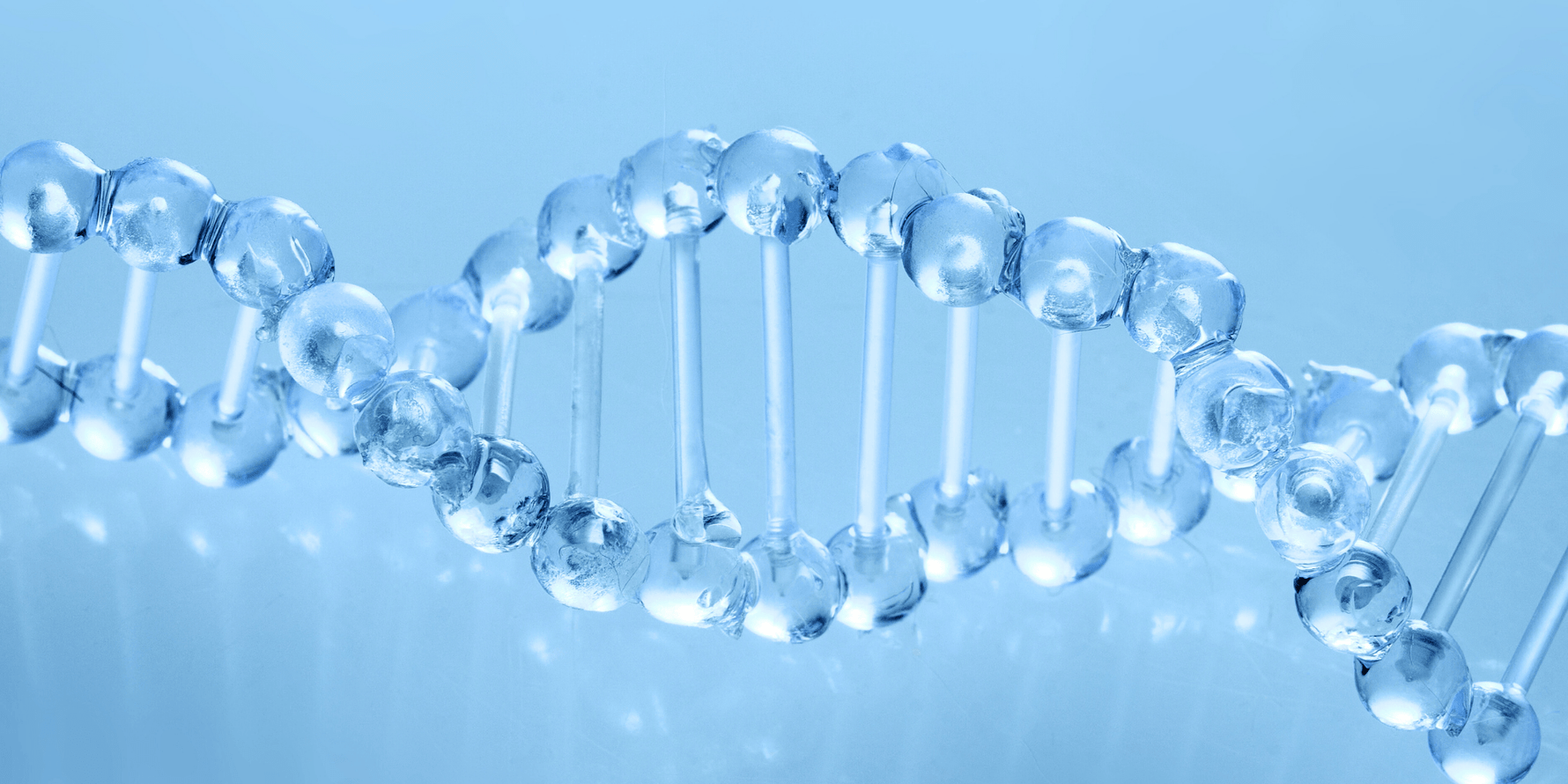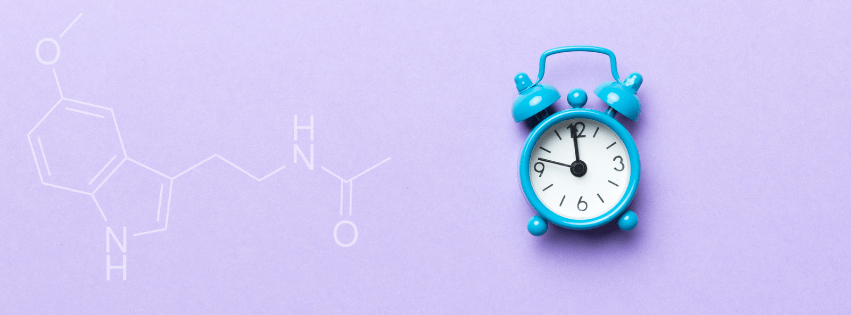
Your knowledge area
Welcome to the H3R Glossary
Discover our comprehensive glossary, where we explain the most important terms and topics for you. Our goal is to provide clear and concise explanations to provide you with valuable insights and facilitate understanding.
All articles in our glossary

Nukleotide im Überblick
Biomolekül: Grundbaustein von DNA und RNA
Wichtige Funktionen: Speicherung genetischer Information, Energieübertragung (ATP), Signalübertragung, Cofaktor enzymatischer Reaktionen
Bestandteile: Phosphatgruppe, Zucker (Ribose/Desoxyribose), Base (Adenin, Guanin, Cytosin, Thymin, Uracil)
Bedeutung für den Körper: Zellfunktion, Energiestoffwechsel, Proteinsynthese, Immunabwehr
Nahrungsquellen: Fleisch, Fisch, Hülsenfrüchte, Nüsse, Pilze
Supplementierung: In Prüfung für Immunfunktion, Darmgesundheit und Regeneration
Besondere Beispiele: ATP (Energie), cAMP (Signalübertragung), NAD⁺/FAD (Stoffwechsel)
Nukleotide sind die Grundbausteine der Nukleinsäuren DNA und RNA, die in allen lebenden Organismen vorkommen. Sie spielen eine zentrale Rolle bei der Speicherung, Weitergabe und Ausführung genetischer Informationen. Darüber hinaus sind sie auch an zahlreichen biochemischen Prozessen beteiligt, die für das Leben unverzichtbar sind.
Was sind Nukleotide? Eine Definition
Ein Nukleotid setzt sich aus drei wesentlichen Bestandteilen zusammen:
Phosphatgruppe
Monosaccharid (Zucker), entweder Ribose oder Desoxyribose
Nitrogenhaltige Base, zum Beispiel Adenin, Guanin, Cytosin, Thymin oder Uracil
Je nach Zusammensetzung unterscheidet man zwischen Ribonukleotiden (Bestandteile der RNA) und Desoxyribonukleotiden (Bestandteile der DNA). Diese kleinen Moleküle sind essenziell für die genetische Codierung und den Aufbau von Proteinen.
Funktion & heutige Bedeutung
Nukleotide haben im menschlichen Körper mehrere entscheidende Funktionen:
Genetische Information: Sie bilden die DNA- und RNA-Stränge, die das gesamte Erbgut codieren.
Energieübertragung: Adenosintriphosphat (ATP), ein Nukleotid, ist das wichtigste Energiemolekül in Zellen.
Signalübertragung: Bestimmte Nukleotide fungieren als Second Messenger, die biochemische Signale innerhalb der Zellen weiterleiten.
Enzymatische Funktionen: Sie dienen als Cofaktoren bei enzymatischen Reaktionen.
Auch in der Ernährungswissenschaft finden Nukleotide zunehmend Beachtung. Nahrungsergänzungsmittel mit Nukleotiden werden erforscht, um mögliche Vorteile für das Immunsystem, die Regeneration oder die Darmgesundheit zu erzielen.
Besondere Hintergründe zu Nukleotiden
Die Entdeckung der Nukleotide geht auf das 19. Jahrhundert zurück, als Chemiker die chemische Struktur von DNA und RNA Schritt für Schritt entschlüsselten. Mit der Veröffentlichung des DNA-Doppelhelix-Modells 1953 wurde ihre fundamentale Bedeutung endgültig bestätigt. Heute weiß man, dass Nukleotide nicht nur Träger von Erbinformationen sind, sondern auch als molekulare "Schalter" für zahlreiche Stoffwechselwege fungieren.
In der Supplement-Forschung werden Nukleotide derzeit hinsichtlich folgender Aspekte untersucht:
Unterstützung des Immunsystems in stressigen Phasen
Förderung einer gesunden Darmflora
Verbesserung der Regeneration nach sportlicher Belastung
Auch wenn viele Ergebnisse vielversprechend sind, steht die wissenschaftliche Forschung zu Nahrungsergänzung mit Nukleotiden noch am Anfang.
Spannende Fakten rund um Nukleotide
ATP als Energiequelle: Jede Körperzelle produziert und verbraucht täglich Milliarden Moleküle ATP – ohne Nukleotide wäre Leben unmöglich.
Nahrung als Quelle: Nukleotide kommen natürlicherweise in Fleisch, Fisch, Hülsenfrüchten und Pilzen vor.
Mythen: Früher galt DNA als "nutzloser Ballast" im Zellkern. Heute weiß man, dass Nukleotide die Grundlage sämtlicher biologischer Prozesse sind.
Evolution: Nukleotide werden als eine der ältesten Biomoleküle angesehen – möglicherweise entstanden sie bereits in der Ursuppe der Erde.
Damit sind Nukleotide nicht nur chemische Verbindungen, sondern Schlüsselstrukturen für Leben, Gesundheit und Forschung.

PMDS im Überblick
Englische Bezeichnung: Prämenstruelle Dysphorische Störung (PMDS), aus dem Englischen
Definition: Besonders ausgeprägte Form von prämenstruellen Beschwerden (PMS)
Dauer: 1–2 Wochen vor der Menstruation
Häufigkeit: Weniger verbreitet als klassisches PMS, betrifft aber einen Teil der menstruierenden Frauen (Schätzungweise 3%)
Hauptsymptome: Starke emotionale Schwankungen, intensive Reizbarkeit, extreme Müdigkeit, körperliche Beschwerden
Bedeutung für Frauen: Kann Lebensqualität, soziale Beziehungen und berufliche Leistungsfähigkeit stark beeinträchtigen
Ursachen: Verstärkte hormonelle Schwankungen, Veränderungen von Neurotransmittern wie Serotonin, individuelle Sensitivität
Maßnahmen: Zyklusprotokoll führen, Ernährung, Bewegung, Stressmanagement, ggf. ärztliche Unterstützung oder Supplementierung
PMDS – Definition
PMDS (aus dem Englischen: Premenstrual Dysphoric Disorder, PMDD) beschreibt eine besonders intensive Form des prämenstruellen Syndroms (PMS), bei der körperliche und psychische Beschwerden deutlich stärker ausgeprägt sind. Die Symptome treten typischerweise 1–2 Wochen vor der Menstruation auf und klingen mit Beginn der Blutung ab.
Häufige Symptome bei PMDS
Emotionale Extremreaktionen: intensive Stimmungsschwankungen, Reizbarkeit, Traurigkeit, Angst
Körperliche Beschwerden: starke Unterleibsschmerzen, Brustspannen, Blähungen, Kopfschmerzen, Wassereinlagerungen
Verhaltensveränderungen: extreme Müdigkeit, Konzentrationsstörungen, Schlafprobleme, Appetitveränderungen
Bedeutung für betroffene Frauen
PMES kann die Lebensqualität erheblich beeinträchtigen. Frauen mit PMDS erleben oft stärkere Einschränkungen im Alltag, Beruf und sozialen Umfeld als bei klassischem PMS. Ein gezieltes Management der Symptome ist daher besonders wichtig.
Ursachen von PMDS
Die Ursachen von PMDS sind ähnlich wie beim PMS, jedoch stärker ausgeprägt. Dazu zählen hormonelle Schwankungen (Östrogen, Progesteron), Veränderungen von Neurotransmittern (Serotonin) und individuelle Sensitivität. Genetische, psychologische und Lebensstilfaktoren können die Intensität der Beschwerden verstärken.
Maßnahmen & Unterstützung
Zyklusprotokoll führen, um Muster zu erkennen
Ernährung: ausgewogen, reich an Magnesium, Vitamin B6 und Omega-3
Regelmäßige körperliche Aktivität
Stressmanagement: Meditation, Entspannungstechniken, Schlafhygiene
Nahrungsergänzung bei Bedarf (zum Beispiel: Magnesium, Vitamin B6, Omega-3)
Ärztliche Beratung bei stark ausgeprägten Symptomen oder PMDS
Unsere Quellen:
American College of Obstetricians and Gynecologists. Premenstrual Syndromes (PMS) and PMDD, 2020.
Yonkers KA et al. (2008). Premenstrual disorders. New England Journal of Medicine, 358(24), 2629–2639.
Examine.com – PMS & PMDD Summary

PMS (Prämenstruelles Syndrom) im Überblick
Definition: Sammelbegriff für körperliche und psychische Beschwerden vor der Menstruation
Dauer: Typischerweise 1–2 Wochen vor Beginn der Periode
Häufigkeit: Betroffen sind etwa 70–90% aller menstruierenden Frauen in unterschiedlicher Intensität
Hauptsymptome: Stimmungsschwankungen, Reizbarkeit, Müdigkeit, Brustspannen, Blähungen, Kopfschmerzen
Bedeutung für Frauen: Kann Lebensqualität, Arbeitsfähigkeit und soziales Umfeld beeinträchtigen
Ursachen: Hormonelle Schwankungen (Östrogen, Progesteron), Neurotransmitterveränderungen (Serotonin)
Maßnahmen: Ernährung, Bewegung, Stressmanagement, ggf. Supplementierung oder ärztliche Behandlung
Starke Form: Prämenstruelle Dysphorische Störung (PMDS)
Allgemeine Definition
Das Prämenstruelle Syndrom (PMS) beschreibt ein Bündel von körperlichen, emotionalen und psychischen Beschwerden, die typischerweise 1–2 Wochen vor der Menstruation auftreten und mit dem Einsetzen der Blutung wieder abklingen. Die Intensität und Art der Symptome können stark variieren.
Häufige Symptome von PMS
Emotionale Beschwerden: Reizbarkeit, Stimmungsschwankungen, Traurigkeit, Ängstlichkeit
Körperliche Beschwerden: Brustspannen, Unterleibsschmerzen, Blähungen, Kopfschmerzen, Wassereinlagerungen
Veränderungen im Verhalten: Müdigkeit, Konzentrationsschwierigkeiten, Appetitveränderungen
Bedeutung für Frauen
PMS kann die Lebensqualität erheblich beeinflussen. Viele Frauen erleben Einschränkungen in Alltag, Beruf oder sozialen Beziehungen. Besonders in hormonellen Umbruchphasen (Perimenopause, Schwangerschaft, Stillzeit) kann die Intensität der Symptome variieren. Ein gutes Verständnis der eigenen Zyklusmuster und gezielte Maßnahmen können helfen, Belastungen zu reduzieren.
Ursachen von PMS
Die genauen Ursachen sind nicht vollständig geklärt, werden aber mit hormonellen Schwankungen im Zyklus (Östrogen, Progesteron) sowie Veränderungen von Neurotransmittern wie Serotonin in Verbindung gebracht. Genetische, psychologische und Lebensstilfaktoren können die Ausprägung beeinflussen.
Maßnahmen & Unterstützung
Ernährung: ausgewogen, reich an Magnesium, Vitamin B6, Omega-3-Fettsäuren
Bewegung: regelmäßige körperliche Aktivität kann Symptome lindern
Stressmanagement: Entspannungstechniken, Meditation, Schlafhygiene
Supplementierung: Magnesium, Vitamin B6, Omega-3 (bei Bedarf)
Medizinische Hilfe: Bei stark ausgeprägtem PMS oder PMDD (prämenstruelle dysphorische Störung) ärztliche Abklärung sinnvoll
Unsere Quellen
American College of Obstetricians and Gynecologists. Premenstrual Syndrome (PMS). 2020.
Houghton LA et al. (2007). Diet and lifestyle in the management of premenstrual syndrome. Journal of Obstetrics and Gynaecology, 27(7), 681–686.
Examine.com – PMS Summary

B like vitamin B2 (riboflavin)
Vitamin B2 – Cell energy & radiance for skin, eyes and nerves
Vitamin B2 , also known as riboflavin , is an essential, water-soluble B vitamin. It supports your energy metabolism , helps convert food into cellular energy , and contributes to protection against oxidative stress .
Particularly exciting for women: Vitamin B2 supports the health of skin, hair and nails , has a positive effect on eyesight and the nervous system – and is indispensable, especially during periods of hormonal change or in vegan diets .
Typical symptoms of a deficiency can be:
Dry skin & chapped corners of the mouth
Increased sensitivity to light
Irritability or difficulty concentrating
Since the body cannot store vitamin B2, a daily intake through diet or high-quality supplements is crucial – especially during stressful phases of life or pregnancy.
Sources:
Powers HJ. (2003). Riboflavin (vitamin B-2) and health. The American Journal of Clinical Nutrition, 77(6), 1352-1360.
Institute of Medicine (US). (1998). Dietary Reference Intakes for Thiamine, Riboflavin, Niacin, Vitamin B6, Folate, Vitamin B12, Pantothenic Acid, Biotin, and Choline.
Examine.com – Riboflavin Summary
Support your microbiome holistically – with our 9×PROBIO COMPLEX. Perfectly combined with B vitamins such as riboflavin for more balance in the gut-brain system.
Discover now

Iron – Energy, Cycle & Strength in the Blood
Iron is a vital trace element that your body cannot produce itself – you must consume it daily through your diet or as a supplement. It plays a key role in the formation of hemoglobin , the oxygen carrier in your blood. Without sufficient iron, oxygen transport slows down – the consequences: less energy, increased susceptibility to infection, and mood swings .
Iron is particularly important for women, as iron reserves are regularly lost through menstruation . The need can also be increased during pregnancy , with a vegan diet , or during strenuous physical activity . A deficiency often manifests itself in fatigue, brittle nails, hair loss, pale skin, concentration problems , or irregular cycles.
Important: It's not just the hemoglobin level that counts – especially a low ferritin level (storage iron) can lead to exhaustion in the long term, even if the blood values appear "normal" at first glance. A complete blood count provides clarity. In many cases, a make sense – ideally in consultation with your doctor or therapist.
Sources:
World Health Organization. (2011). Haemoglobin concentrations for the diagnosis of anemia and assessment of severity.
Zimmermann MB, Hurrell RF. (2007). Nutritional iron deficiency. The Lancet, 370(9586), 511-520.
Examine.com – Iron Summary
🩸 Discover Iron Complex – Energy & Strength for your Cycle
Well-tolerated iron plus vitamin C & B complex – for blood formation, energy and mental balance when needed more frequently.
Discover now

Ashwagandha – Adaptogen for balance and strength
Ashwagandha (Withania somnifera), also known as "Indian ginseng" or "winter cherry," is a medicinal plant in Ayurvedic medicine that has been used for centuries to promote energy, resilience, and inner balance. As a so-called adaptogen, ashwagandha helps the body better cope with stress—both physically and mentally. Studies show that the plant extract can lower cortisol levels (our stress hormone) while improving concentration , sleep quality , and overall well-being .
For many women, Ashwagandha is particularly interesting in the context of hormonal balance and mental health . During phases of PMS , menstrual cycle fluctuations , or menopause, it can help stabilize the nervous system and alleviate energy and mood swings . Ashwagandha is also often used as an adjunct to sleep disorders or chronic fatigue .
Important: The effect usually develops over weeks—so it's not a quick boost, but rather a natural support for long-term balance. As with all herbal remedies, consult a specialist before taking, especially if you have existing medical conditions or are pregnant.
Sources:
Chandrasekhar K, Kapoor J, Anishetty S (2012). A randomized double-blind, placebo-controlled study of the safety and efficacy of a high-concentration full-spectrum Ashwagandha extract in reducing stress and anxiety in adults. Indian Journal of Psychological Medicine, 34(3), 255-262.
Lopresti AL, Smith SJ, Malvi H, Kodgule R (2019). An investigation into the stress-relieving and pharmacological actions of an ashwagandha (Withania somnifera) extract: A randomized, double-blind, placebo-controlled study. Medicine (Baltimore), 98(37):e17186.
Examine.com – Ashwagandha Summary
✨ Learn more about our Inner Calm Supplement with Ashwagandha
Natural, powerful, holistic: Support your balance with our Ashwagandha complex.
Discover now

Melatonin – Your pacemaker for sleep, cycle & balance
Melatonin is a hormone produced naturally in the body, primarily in the pineal gland in the brain – at night, in the dark . It is the most important messenger for our sleep-wake cycle (circadian rhythm) and acts as an internal clock for rest, regeneration, and hormonal balance. When it gets dark, melatonin levels rise, signaling to the body: time to wind down. In the morning, with the arrival of light, the level drops again.
For women, melatonin not only plays an important role in falling asleep and staying asleep – it also influences the menstrual cycle , fertility , and even symptoms during perimenopause . Chronic stress, blue light in the evening, shift work, or jet lag can disrupt melatonin production. The result: difficulty falling asleep, exhaustion, mood swings, or irregular cycles. Melatonin supplementation can help stabilize sleep patterns in the short term – but should be used consciously and not permanently. Natural aids such as darkness, evening routines, and sleep hygiene are also essential.
Sources:
Hardeland R. (2012). Melatonin in aging and disease — multiple consequences of reduced secretion, options and limits of treatment. Aging and Disease, 3(2), 194–225.
Cipolla-Neto J, Amaral FG. (2018). Melatonin as a hormone: new physiological and clinical insights. Endocrine Reviews, 39(6), 990-1028.
Examine.com – Melatonin Summary
🛌 Learn more about Sleep / Melatonin Complex with Melatonin
Our gentle sleep supplement with melatonin and natural plant extracts – for restful nights and hormonal balance.
Discover now




